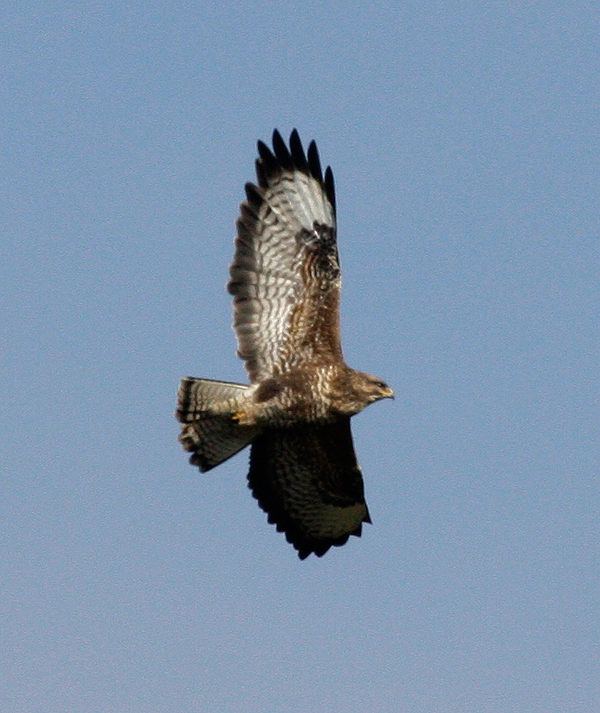Natural England issues first licence to control buzzards to protect gamebirds

The first licence for the control of buzzards to protect gamebird stocks was issued in April by Natural England, it was revealed today after a Freedom of Information request by the RSPB. It was not, however, the first ever licence issued to control buzzards – licenses have been issued for many years for other reasons, notably to control adult buzzards around airfields.
A small farm shoot which experienced heavy losses over several years due to repeated predation of both pheasants and wild grey partridges applied for a licence to control a small number of buzzards after exhausting all non-lethal methods. The application was supported by the National Gamekeepers’ Organisation which was prepared to seek a judicial review should it have failed.
For security reasons, the location and name of the shoot was protected by Natural England in published documents, however the licence granted to the shoot, which releases only several hundred poults annually, allowed for the destruction of four nests and eggs for the purpose of protecting livestock between 23 April and 8 May this year. The application was granted following extensive trialling of non-lethal methods recommended by NE, including diversionary feeding and habitat mitigation measures to protect released poults. In the words of the applicant, “The main effect of the diversionary feeding was to concentrate and keep raptors in the areas where the pheasants were, making matters worse.”
A spokesman for NGO explained that the organisation had fought hard for the application to be processed irrespective of public opinion: “We believe the longstanding licensing process was correctly used in this case. A few buzzards had been consistently killing a large number of pheasants and all available non-lethal means to dissuade them had failed. A small business was threatened as a result. The licensing route available under the Wildlife and Countryside Act 1981 exists for exceptional circumstances just such as these.
“Most birds of prey are now at or near record levels in the UK, so conflicts with game management, farming and wildlife conservation are bound to occur from time to time. Illegal persecution, which the NGO utterly condemns, can never be the solution. The licensing process, backed by law, is the correct way to resolve these conflicts.
Martin Harper, the RSPB’s conservation director, stated: “I think that it is wrong for NE to issue buzzard control licences to protect commercial interests. It is wrong that there has been no public scrutiny of these decisions and it is wrong that we only heard of these decisions after the nests may have been destroyed.”
Despite the RSPB’s statement, earlier this month, on 9 May, the charity told the Standing Conference on Countryside Sports that it believes the bird licensing system in general is “robust and good” and that it accepts the licensed killing of cormorants to protect fisheries. In 2011, NE issued over 400 licences for killing 2648 cormorants to protect fisheries – there are 10 times as many buzzards in the UK as there are cormorants.








